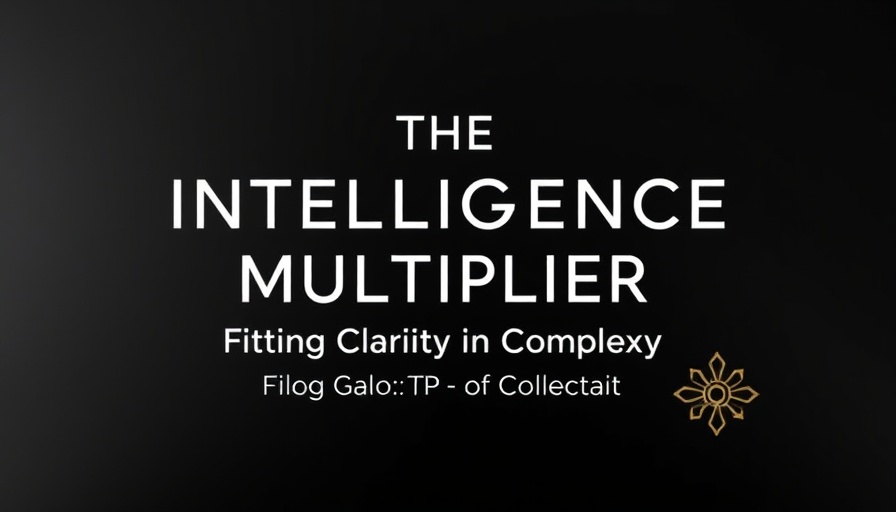
AI: A New Collaborator in the Age of Complexity
The rapid integration of artificial intelligence (AI) into our daily lives brings unparalleled opportunities and challenges. One notable perspective comes from John Heywood, who details his transformative journey with Generative AI amidst personal health challenges, enabling him to navigate cognitive overload while maintaining productivity. This reflection not only presents a personal narrative but underlines a broader societal shift — the acknowledgment of AI as a crucial ally in times of complexity.
Transforming Challenges into Opportunities
Heywood's journey reflects a larger trend where individuals are increasingly leaning into AI technologies to enhance their cognitive capabilities. As highlighted in studies by MIT Sloan, AI can amplify skilled workers’ productivity by up to 40% when used within its operational boundaries. This shift is not merely about more efficient workflows but about fostering creativity and innovation in environments that might otherwise stifle them, especially in urban centers where tech adoption is soaring.
The Double-Edged Sword of Generative AI
However, the conversation surrounding AI is not without its complexities. The excitement surrounding its potential often clashes with concerns over job security, ethical implications, and the potential for biased outputs. As Heywood notes, the emergence of AI brings about a new workforce dynamic — one must carefully weigh the benefits against the risks of AI-induced automation and inequality. Yet, as emphasized in the Harvard Business Review, generative AI possesses the unique capability to democratize innovation, bridging the gap between creativity and technical execution, fostering collaborative environments, and pushing the boundaries of what is achievable.
Navigating the Path Forward
The clear takeaway is that AI's role in society is one of augmentation rather than replacement. By embracing this technology thoughtfully and responsibly, as Heywood outlines, we can harness its potential for social good in areas like education, policymaking, and more. It’s imperative for policymakers and stakeholders to engage actively in discussions on AI ethics and governance, ensuring that technology complements human effort and addresses societal challenges rather than exacerbating them.
Embracing a Balanced Approach
In this unfolding narrative of AI, the focus should remain on ethical considerations and human-centric applications. As we stand on the precipice of this technological evolution, we must foster a culture that champions responsible AI usage, ensuring its applications align with human values and societal needs. It’s a call to not just adapt to change, but to engage in shaping our technological future actively.
 Add Row
Add Row  Add
Add 




Write A Comment